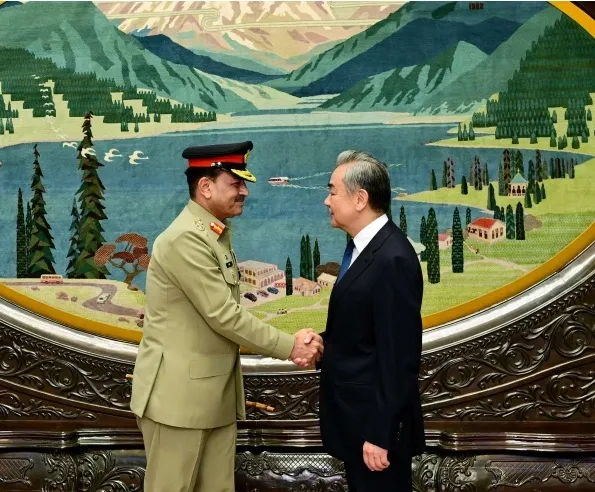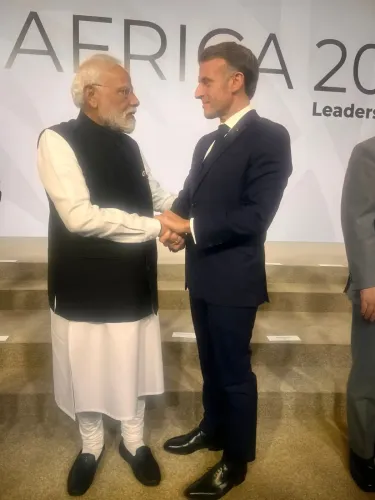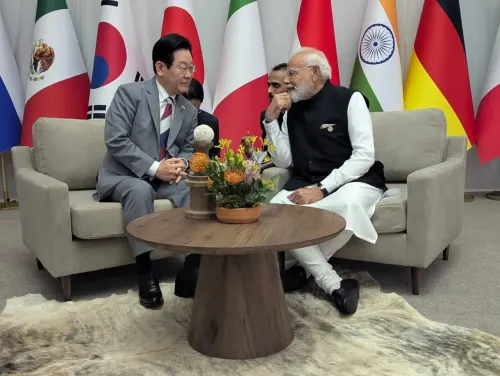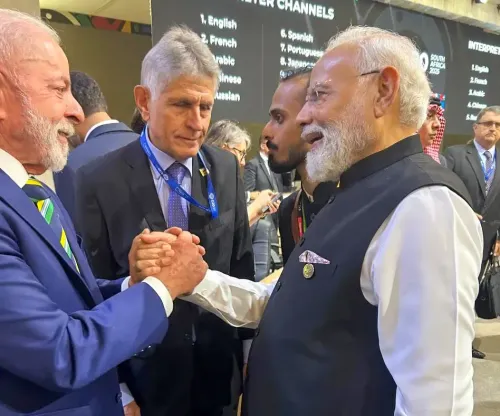Is the Pakistan-China Defence Alliance Threatening Regional Stability?

Synopsis
Key Takeaways
- Pakistan's military dependence on China has reached unprecedented levels, with 81% of arms imports coming from Beijing.
- The transition from Western suppliers to Chinese arms has significant implications for regional security.
- Joint military projects have strengthened technological ties between the two nations.
- Concerns over nuclear cooperation between Pakistan and China could lead to increased instability.
- The alliance impacts broader Indo-Pacific security dynamics, necessitating policy responses.
Muscat, Aug 11 (NationPress) The Pakistan-China arms collaboration has drastically altered the military equilibrium in South Asia, posing considerable threats to regional stability and the global security architecture, according to a report released on Monday. This alliance goes beyond typical buyer-seller dynamics, establishing Pakistan as a critical node in China's strategic military influence operations across South Asia and beyond.
"Pakistan's reliance on Chinese military equipment has reached record highs. As reported by the Stockholm International Peace Research Institute (SIPRI), China has accounted for 81 percent of Pakistan's arms imports over the past five years, marking a significant departure from the balanced procurement strategy Pakistan previously maintained between Western and Chinese suppliers," the Times of Oman report noted.
The analysis indicates that since 2015, China has exported arms worth $8.2 billion to Pakistan, with Islamabad comprising 63 percent of Beijing's total arms exports from 2020 to 2024. This represents a clear pivot away from traditional Western suppliers.
Historically, in the late 2000s, both the US and China each supplied about one-third of Pakistan's military imports. However, in recent years, Islamabad has ceased acquiring American arms and instead fortified its military capabilities with Chinese weaponry. This shift accelerated following the US's termination of military aid programs, which signified a substantial overhaul of Pakistan’s defense procurement strategy.
"Joint ventures producing military equipment, including fighter jets and guided missile frigates, have strengthened technological integration between the two nations' military-industrial sectors. This relationship has also facilitated intelligence sharing that extends beyond mere arms transactions. Pakistan has granted China access to US and other Western military technologies, which Beijing has subsequently reverse-engineered," the report elaborated.
"This intelligence-sharing framework has empowered China to refine its military capabilities through evaluations of Western systems previously acquired by Pakistan, raising pressing concerns regarding technology security and proliferation controls," it continued.
The report also noted that the recent conflicts between India and Pakistan have necessitated a reassessment of Chinese weaponry, challenging long-standing perceptions regarding responsible arms management. The report stated that Pakistan’s bolstered military capabilities have strategic ramifications that extend beyond its rivalry with India. The effectiveness of Chinese military systems in operational contexts enhances their appeal to other regional actors, potentially igniting an intensified arms race.
The conventional arms ties linking Pakistan and China have also heightened concerns about nuclear cooperation. Furthermore, Chinese assistance to Pakistan in acquiring nuclear capabilities has raised alarms about Beijing’s role in fostering instability in South Asia, with potential repercussions extending to the Middle East. While official Chinese stances deny the transfer of weapons-grade materials, unofficial reports suggest that China has, in fact, transferred nuclear weapons technology and enriched uranium to Pakistan.
"The repercussions of this alliance stretch beyond South Asia, impacting broader Indo-Pacific security dynamics and challenging established patterns of arms transfers dominated by Western powers. As this partnership deepens, its destabilizing consequences are expected to widen, necessitating comprehensive policy actions that address both immediate security challenges and long-range strategic competition dynamics," the report concluded.









